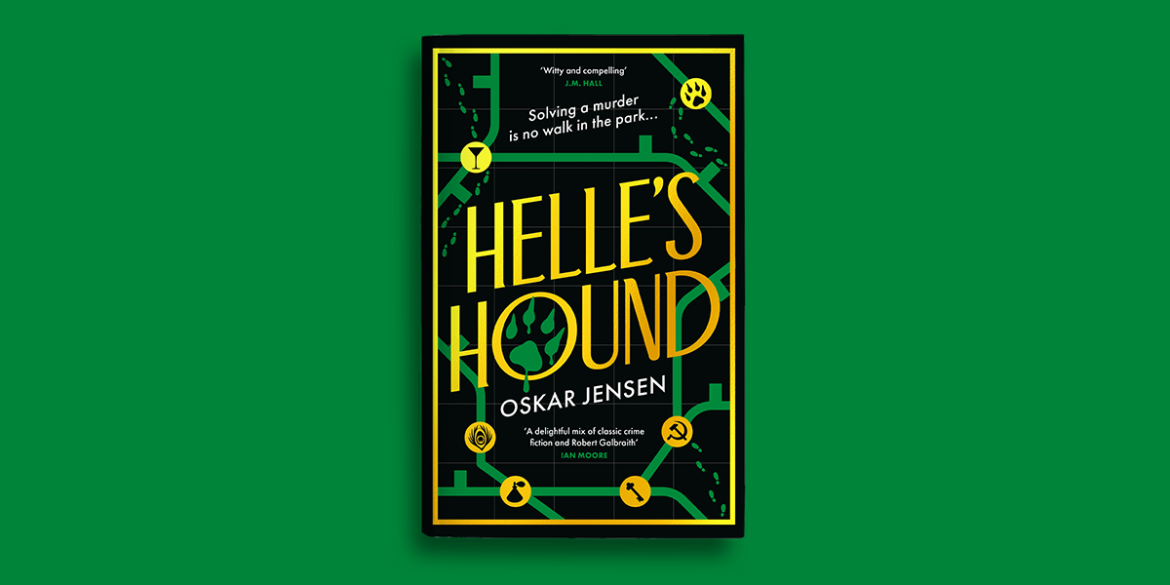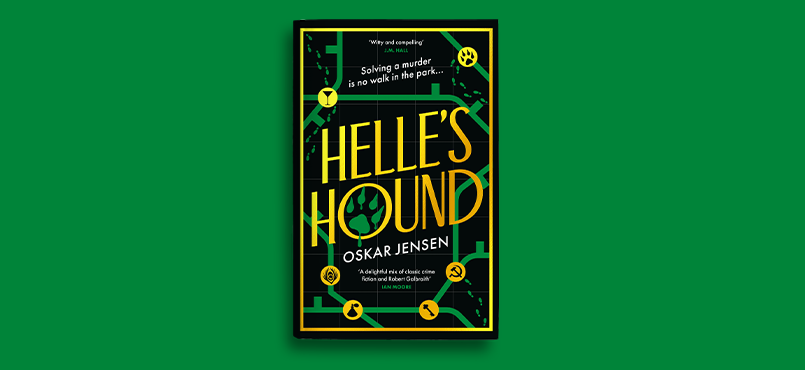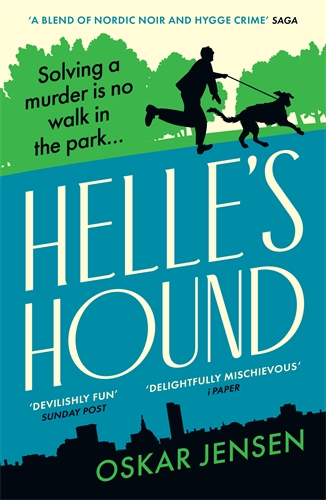30 January 2025
Torben Helle returns in this new novel from the highly acclaimed author of Helle and Death.
A dead art historian. Cold War skulduggery.
A reluctant Danish sleuth. And an extremely hungry dog.
‘A delightful mix of classic crime fiction and Robert Galbraith’ – IAN MOORE
‘Witty, compelling and an intriguing fiendish murder’ – J.M. HALL
‘Brilliantly entertaining and fiendishly fun’ – PHILIPPA EAST
Life, in short, was good to Torben Helle. Take today, for instance: a Sunday, six days after his stroll on the Embankment. Tomorrow, it would be his next dog-walking slot. He also planned to spend a few hours in the British Library consulting a PhD thesis from 2003 on Vilhelm Hammershøi and the concept of interiority, before walking off the stultifying after-effects with Charlotte and Mortimer. Tonight, he was going to a party at Cameron Plott’s rooms in Oarwright College. Cameron, whom he knew through football, was a student, and Torben would usually steer clear of student parties, so as to avoid meeting anyone he might teach. But this one would be safe enough: Cameron was studying for a PhD in mechanical engineering, and tended to socialise with the other footballers. This crowd – mostly male scientists, hailing from everywhere from Rio to Riyadh, Lagos to Lahore – was about as far as you could get from the art history crowd without actually leaving academia. Cameron himself was from somewhere in New Jersey. Torben’s main task for the day was to prep for this party, which meant buying some beer, and catching up on last night’s Match of the Day. Probably not in that order.
He groaned, stretching luxuriantly in the sunlight stealing in from a crack in the shutters. This involved his feet poking over the end of the bed with which the studio had come ready-equipped. But no matter: they could rest on the imitation leather of the one-and-a-halfseater sofa that, together with the bed and glass-topped table, comprised the entirety of the room’s furnishings. Still, he had got lucky: a first-floor studio in this no man’s land between Bloomsbury and Clerkenwell, carved out of a terraced house built, so British History Online had told him, in 1826. The kitchen was a whole other room; the extractor fan in the windowless en suite occasionally even worked. To have all this and be able to walk everywhere still seemed ridiculous, and he raised another mental toast to the memory of Anthony Dodd, whose atypical act of posthumous generosity was subsidising this lifestyle – at least until the autumn, when both the studio’s lease and Torben’s fellowship would come to an end. Even then, the cash would smooth the transition to whatever came next. Prosit, Anthony!
Torben allowed himself another catlike yawn. What was the time? Nine-thirty? No hurry yet. Gary Lineker and Ian Wright could wait a little longer. After all, he couldn’t have Match of the Day without a cup of black coffee, and that meant going through to the kitchen, which meant getting out of bed… Might as well check his phone first. God, but he loved Sundays.
One missed call from late last night. Unknown number – so not Wilson, badgering him about his new podcast again, or Frances wanting a drunken gossip about Sara’s weird home counties relatives. And a voicemail. Seriously? Who did he know who would leave a voicemail?
‘Hello, is that… let me check… yes, this is a call for Torben Hell. Really, hell? Um, sorry, sir, yes, Torben Hell. This is Police Constable Meera Rampur. I’m looking at the appointments diary of Professor Charlotte Lazerton and I believe you’re scheduled to meet on Monday lunchtime. As this appears to be one of Professor Lazerton’s regular engagements I’m calling to inform you… wait… I mean, I’m afraid I have some bad news and you may wish to sit down at this stage. I regret to inform you that Professor Lazerton passed away on…’ – at this point, the line went silent for several seconds – ‘actually, we’re not quite sure when. Look, sir, perhaps you’d better call me back as soon as possible. Basically, she’s dead. And, well, it’s not a pretty sight.’


